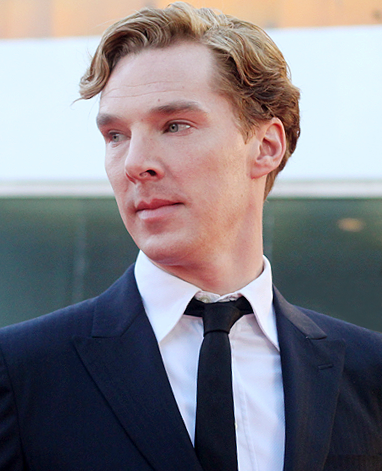Now Showing: “The Power of the Dog” movie review

Check out The Lasso’s new column, Now Showing, where Ben Saito Barwig reviews films.
December 14, 2021
Returning from a 12-year hiatus, Jane Campion, director of “The Piano” and a pioneering force for female voices in Hollywood, delivers an insightful dive back a century and into ranch family dynamics with her newest feature film on Netflix, “The Power of the Dog.” Based on a book with the same title, the film presents a dreary view of a small Montana community, secluded in Big Sky Country’s vast plateaus and rolling mountains, pushing and pulling at their tedious daily tasks as they wrangle cows and fasten ropes. But under this melancholy and sometimes heartless exterior lies many secrets unnoticed that Campion leaves the viewer to uncover. Campion created this film to describe a true world that is deteriorating, alcoholic, homophobic, repressed, selfish, territorial, powerless, and abusive.

“The Power of the Dog” is not a difficult story to grasp. The film follows four primary characters: Phil Burbank (Benedict Cumberbatch), a firm hand who runs the nitty-gritty operations of the ranch, George (Jesse Plemons) his brother and owner of the ranch, busybody and owner of a local restaurant, Rose (Kirsten Dunst), and Rose’s artistically talented son, Peter (Kodi Smit-McPhee). When Rose marries into the Burbank family through George, Phil becomes suspicious of her true intentions and engages in a bidding war for her son’s affection.
This premise serves as a coating for the cake of the narrative, and while it isn’t an uninteresting story to follow, at times it can feel a bit too vague. Dialogue doesn’t quite feel realistic, characters sound very fabricated and scripted. There wasn’t fantastic chemistry between any of the actors, which did not help the fact that the film’s minute-to-minute action relies very heavily on character interaction. My immersion into the film was mainly carried by the acting on display, which was certainly great. Benedict Cumberbatch nails the sweet spot between a modern American accent and a stereotypical western accent, parallel to the time period being a sweet spot between the societal American world and wild west America. It is also reflective of his character being a Yale graduate, yet still dedicating his life to the land. These are only a few examples of the fantastic character work both from the acting and filmmaking side behind the movie.
I want to specifically focus on the filmmaking happening in this movie because it is where many of the intricacies of the film lie. Simply put, Jane Campion knows how to create characters. The four main characters stand as very well-defined and developed entities that are both interesting to watch as well as strong themes in their own right. To me, they each can be seen as different pillars of family politics. They push and pull at each other like many modern split households do, and fight to maintain or steal the dedication and love from the child in the family. This hostile environment that had me basking in Wyoming’s beauty yet feeling ever so slightly uncomfortable is a testament to Campion’s greatness as a director.
Additionally, I am positive that many families can relate to a feeling of uneasiness in a place of comfort. As political turmoil and polarization rises, many of us see rifts between family members growing within our own homes. The film has the gruel and filth of those Thanksgiving dinner arguments, as well as the compassion of sitting on the porch with them an hour later, watching the sun set. Campion understands this modern domestic ecosystem, and I think it is a primary reason she decided to make “The Power of the Dog” now. New historical films can often feel purposeless, merely scratching an itch for a period piece without any true artistic desire to inspire, something like Damien Chazelle’s “First Man.” Even worse, they can make a bitter-tasting attempt to relate to modern social politics that doesn’t actually help, like “Green Book,” which beat out such works of brilliance like “Roma” and “If Beale Street Could Talk” for Best Picture at the Oscars three years ago. “The Power of the Dog” is worth watching just because it is fresh through all this antiquity.
Campion paints a very delicate portrait of the American family dynamic, that is nearly complete except for the exclusion of Jesse Plemons’ character, George. In what should be an essential part of the picture, the stepfather is left out with very little screen time and development. He is built up to be an essential character in the first act, but slowly loses more and more footing in the narrative. There were plenty of scenes in which an inclusion of his character could add to the film, but he is often dismissed.
Combined with instances of lackluster dialogue, “The Power of the Dog” is left with many incredibly strong pillars that unfortunately are victim to poor physical bonds between them. Campion garnered massive critical praise for her 1993 film “The Piano,” which is also on Netflix, so if you want to see a preview of her filmmaking, I highly recommend checking that movie out. If you’ve seen “The Power of the Dog” and want something even better, I recommend Paul Thomas Anderson’s “There Will Be Blood” on Netflix, which is also a story about the early 1900’s west, family, and selfishness.
Amidst all my thinking about “The Power of the Dog,” I managed to come to one definitive conclusion: I would love to see an extended cut of the film. Campion could slow down and give the characters more time and space to dwell. I wouldn’t mind a 160 or even a 180 minute cut of the movie if it meant that we could see more of George’s character and give the audience even more time to ponder, as “The Power of the Dog” is strongest in those quiet moments, contemplating the world as we know it and how it is changing. Roaming around forests and soaking in the beauty of what is true to you. 3.5/5







